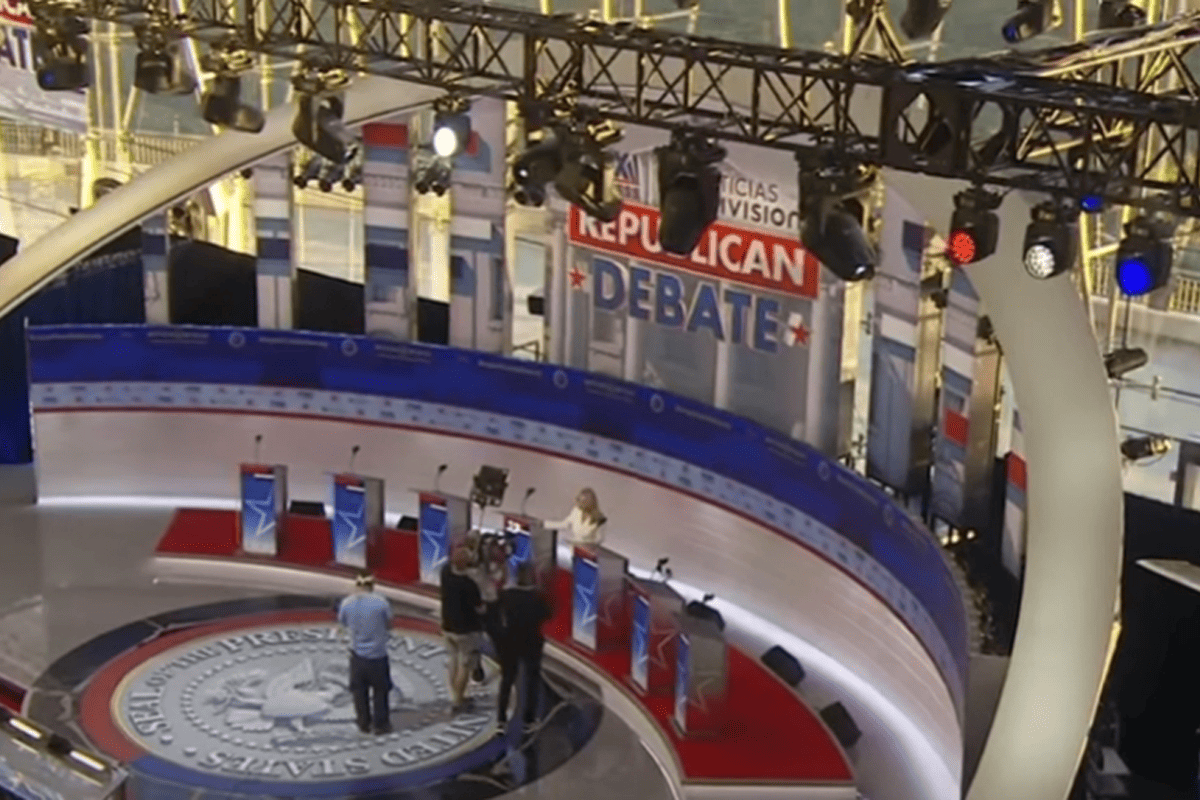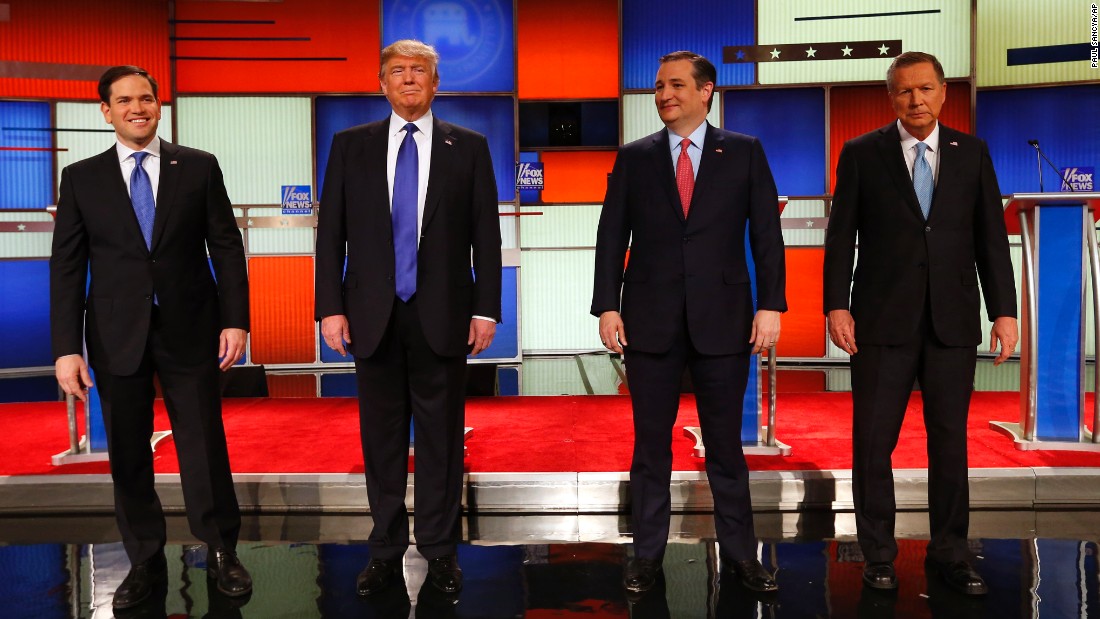The Fox Presidential Debate

The Fox Presidential Debate, a pivotal event in the American political landscape, has left an enduring mark on the nation’s history. Its significance lies in its role as a platform for showcasing the candidates’ positions, influencing public opinion, and shaping the course of the election.
Evolution of Presidential Debates, Fox presidential debate
Presidential debates have undergone a transformative journey since their inception. The first televised debate in 1960 between John F. Kennedy and Richard Nixon marked a watershed moment, demonstrating the power of television in shaping political discourse. The debate, which was widely considered a victory for Kennedy, highlighted the importance of visual communication and the impact of a candidate’s appearance and demeanor.
The 1980 debate between Ronald Reagan and Jimmy Carter, characterized by Reagan’s calm and confident demeanor, is often cited as a turning point in the evolution of debates. Reagan’s performance helped to solidify his image as a strong and decisive leader, contributing to his victory in the election.
The rise of cable news and the internet has led to a more fragmented media landscape, with a wider range of platforms for political discourse. This has resulted in a greater emphasis on soundbites and short-form content, often leading to a focus on theatrics and entertainment value over substantive policy discussions.
The Fox Debate: A Comparison
The Fox Presidential Debate, like its predecessors, has played a significant role in shaping public perceptions of the candidates. It has also reflected the evolving nature of political debates, incorporating elements of both traditional and modern approaches.
Similarities and Differences
- Format: The Fox debate followed the traditional format of a moderated discussion, featuring a panel of journalists asking questions and candidates responding. This format has been a staple of presidential debates for decades, providing a structured platform for candidates to present their views.
- Topics: The Fox debate covered a range of issues, including the economy, healthcare, immigration, and foreign policy. This is consistent with the scope of topics typically addressed in presidential debates, reflecting the broad range of concerns facing the nation.
- Impact: The Fox debate, like previous debates, has had a significant impact on the election. It has provided voters with valuable insights into the candidates’ positions, helping them to make informed decisions.
Key Themes and Issues of the Fox Presidential Debate

The Fox Presidential Debate provided a platform for the candidates to engage in a spirited exchange of views on a range of pressing issues. The debate, held in a highly charged political climate, covered topics that are central to the concerns of the American public.
The Economy
The economy was a dominant theme throughout the debate, with candidates outlining their plans for economic growth, job creation, and addressing income inequality. Candidates highlighted their stances on issues such as tax policy, trade agreements, and government spending. For example, Candidate A advocated for a tax cut for businesses, arguing that it would stimulate economic growth and job creation. Candidate B, on the other hand, proposed a more progressive tax system, aiming to reduce income inequality and increase government revenue for social programs.
Healthcare
Healthcare remains a highly debated issue in the United States. Candidates discussed their approaches to healthcare reform, touching upon topics like the Affordable Care Act (ACA), access to affordable healthcare, and the role of government in healthcare. Candidate A, a strong supporter of the ACA, emphasized its positive impact on expanding health insurance coverage. Candidate B, however, proposed a different approach, advocating for market-based solutions and a greater focus on individual responsibility in healthcare.
Climate Change
Climate change has emerged as a defining issue of our time, and the debate saw candidates express their views on this critical topic. Candidates discussed their policies on addressing climate change, ranging from investments in renewable energy to carbon pricing mechanisms. Candidate A, a vocal advocate for action on climate change, proposed ambitious goals for reducing greenhouse gas emissions. Candidate B, while acknowledging the need to address climate change, emphasized the importance of a balanced approach that considers economic growth and energy security.
The Debate’s Impact on the Presidential Election

The Fox Presidential Debate, like all major debates, carries significant weight in shaping the trajectory of the presidential election. It’s a crucial moment where candidates attempt to sway undecided voters, reinforce their core messages, and potentially damage their opponents. The debate’s impact extends beyond the immediate aftermath, influencing voter perception, media narratives, and ultimately, the election’s outcome.
Influence on Voter Perception
The debate serves as a powerful platform for candidates to connect with voters directly, offering insights into their personalities, policies, and leadership styles. This direct interaction can significantly influence voter perception, potentially shifting public opinion and candidate favorability.
For example, a candidate who demonstrates strong command of the issues, effectively refutes their opponents’ arguments, and exhibits charisma and empathy can gain favor among undecided voters. Conversely, a candidate who appears unprepared, evasive, or lacking in substance may suffer a decline in their support.
Impact on Media Coverage
The debate often sets the agenda for subsequent media coverage, influencing the narrative surrounding the election. The debate’s key moments, memorable soundbites, and candidates’ performances become focal points for news reports, analysis, and commentary.
For instance, a candidate who delivers a strong performance and effectively addresses key issues may receive more favorable coverage, while a candidate who stumbles or makes gaffes may face increased scrutiny and criticism. This media attention can significantly shape public perception and influence the election’s trajectory.
The Fox presidential debate was a heated affair, with candidates clashing on issues like the economy and foreign policy. One of the most contentious topics was the ongoing conflict in the Middle East, and the role of the israel hamas leader in the region.
This complex situation, with its intertwined histories and deeply held beliefs, is a reminder of the global challenges that will continue to shape the future of our world, and the need for thoughtful leadership on the international stage. The Fox debate, though focused on domestic issues, ultimately served as a platform for candidates to outline their vision for America’s role in a world grappling with these complexities.
The Fox presidential debate was a whirlwind of fiery rhetoric and passionate arguments. But amidst the political storm, one couldn’t help but think about simpler times. Perhaps a nostalgic escape to a polly pockets airbnb would offer a much-needed respite from the heated discourse.
After all, even the most heated political battles can’t erase the enduring power of childhood memories and a good dose of whimsy.
